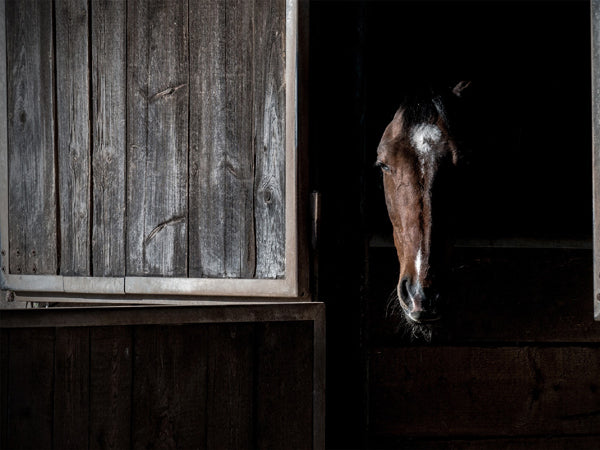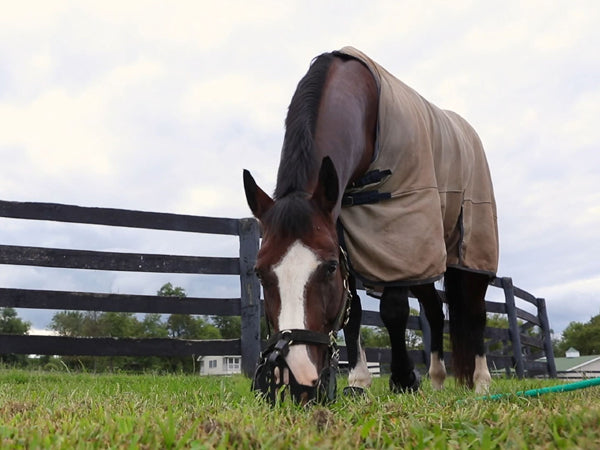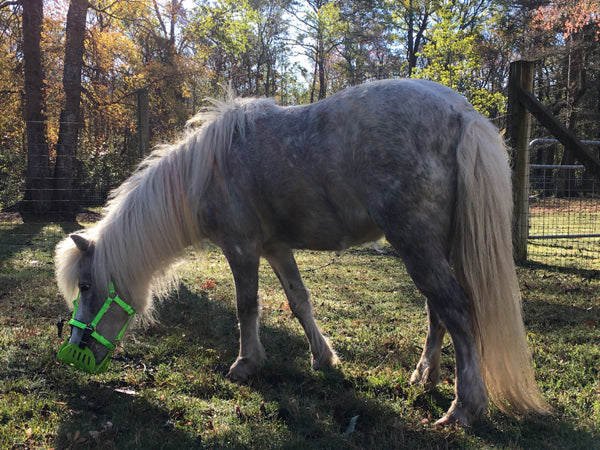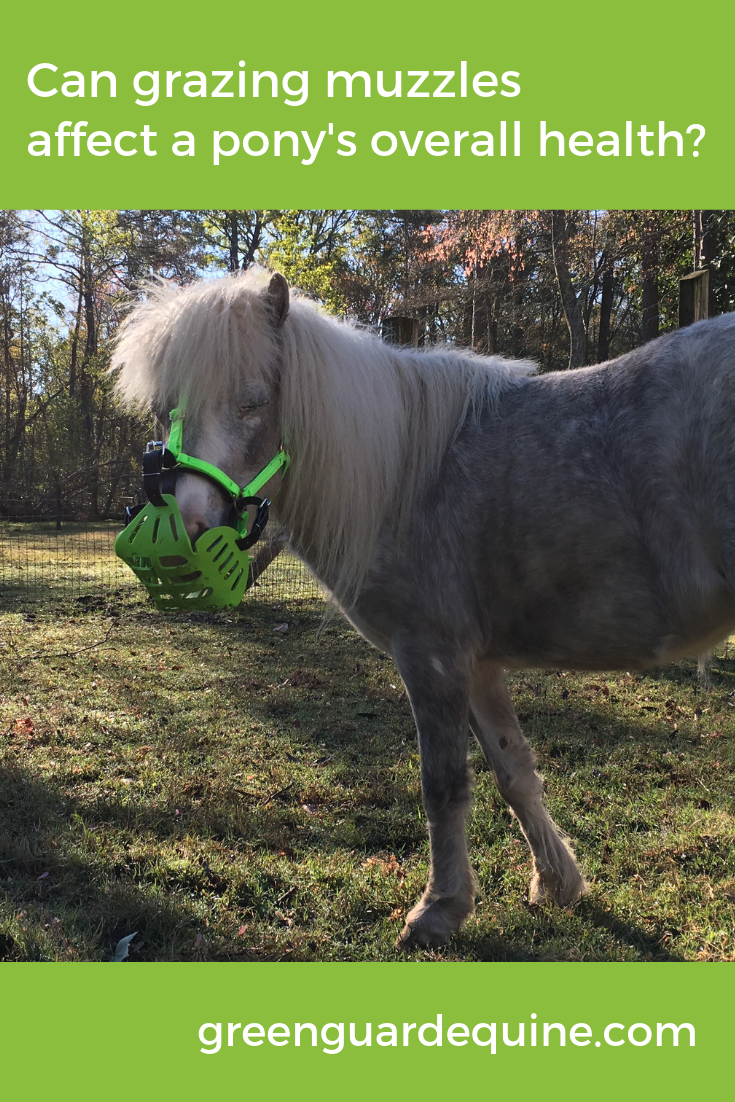The health impacts of overgrazing on horses are becoming clearer with every passing year. Digestive disorders and diseases related to overgrazing, like colic, laminitis, and obesity, are among the leading causes of death in horses. Typical grazing and weight management techniques run the gamut from dry lots to limited turnout. While each of these can be effective, they can also have their own negative effects on a horse's overall health.

Keeping a horse in his stall can have negative effects on physical and emotional health. Photo by B_A on Pixabay.
Keeping a horse isolated in a stall or on a dry lot curtails their socialization, regular exercise, and constant access to grass. Horses are herd animals whose mental and emotional health benefit from social interaction and play. Limiting a horse's ability to move freely affects their fitness level, joints, and circulatory system. Grazing throughout the day plays a critical role in equine digestive health, since the constant presence of grass keeps stomach acids occupied and balanced.
A grazing muzzle, which can restrict grass intake by as much as 80%, allows a horse to socialize, exercise, and still meet their digestive health needs. Why is it, then, that the grazing muzzle still lags behind as a foundational part of an equine digestive health routine?

A grazing muzzle restricts intake while encouraging normal horse activities and behaviors.
A recent informal survey conducted by The Horse showed that nearly two-thirds of respondents did not use, or had never used, a grazing muzzle to restrict grazing.
Some horse owners believe that grazing muzzles are unnatural -- even cruel -- to horses. Others see the cost of a grazing muzzle as a deterrent. However, a grazing muzzle can help prevent devastating equine health problems, problems that directly lead to veterinary and farrier expenses that far exceed the cost of a muzzle. Investing in a muzzle should be considered a proactive equine health-care strategy.
 Cupcake is recovering from chronic founder. Wearing a muzzle means he can be in the pasture again. Photo by Rebecca Wyatt.
Cupcake is recovering from chronic founder. Wearing a muzzle means he can be in the pasture again. Photo by Rebecca Wyatt.
Additionally, conditioning a horse to use a grazing muzzle can extend their pasture time by hours each day. This translates to improved quality of life across the board, giving them more opportunities for social interaction and exercise, factors which lead to an overall happier horse.

Melvin Peña is a researcher and writer, specializing in domestic animals. His work has appeared in the Ohio Equestrian Directory, East Coast Equestrian, Dogster magazine, Dogster.com, and Catster.com. This essay originally appeared under the title "Grazing Muzzles Make a Happier, Healthier Horse" in the April 2019 issue of East Coast Equestrian.




 Cupcake is recovering from chronic founder. Wearing a muzzle means he can be in the pasture again. Photo by
Cupcake is recovering from chronic founder. Wearing a muzzle means he can be in the pasture again. Photo by 

